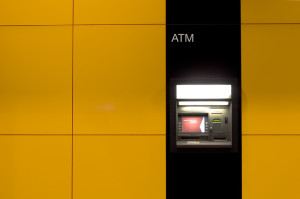May 19th, 2014 by Elma Jane
T-Mobile customers who use their carrier’s Mobile Money app and prepaid card will now have surcharge-free access to more than 43,000 Allpoint-branded ATMs across the United States, through an agreement with the Allpoint Network. The Mobile Money program unites a money management app, a T-Mobile Visa prepaid card and the Allpoint surcharge-free ATM network on a single mobile device to provide customers many of the features of a checking account. With Mobile Money, registered T-Mobile wireless customers pay nothing when they use their T-Mobile Visa Prepaid Card to withdraw cash at an in-network Allpoint ATM.
When T-Mobile began developing the Mobile Money program, a key goal was to use the smartphone to help consumers both manage their money and keep more of it in their pocket. The Allpoint Network helps accomplish that mission with 43,000 surcharge-free ATMs found in many of America’s most popular retailers, made even more convenient by a free, easy-to-use Allpoint ATM locator within the Mobile Money app.
Easy access to cash, preferably without the surcharge imposed by the ATM owner, is at the heart of the most successful general-purpose prepaid card programs. Having access to Allpoint, the T-Mobile Visa Prepaid Card is a core component of Mobile Money by T-Mobile. Eligible cardholders looking for the nearest surcharge-free Allpoint ATM can use the Allpoint Network ATM locator, available online and as a free app for their smartphones.
Posted in Financial Services, Mobile Payments, Smartphone Tagged with: Allpoint ATM, Allpoint Network, Allpoint surcharge-free ATM network, Allpoint-branded ATMs, ATM locator, cardholders, checking account, free app, mobile device, mobile money, Mobile Money app, Mobile Money program, money management app, prepaid card, smartphone, surcharge-free, T-Mobile, T-Mobile Visa prepaid card, T-Mobile wireless
March 31st, 2014 by Elma Jane
Money remittance companies can achieve real benefits by embracing a mobile-first strategy. In fact, when it comes to financial institutions, I can definitely say this is a perfect match! Specially for us who are transferring money to our home country for our loved ones.
Here are some factors why.
It decentralizes transaction points, making it inherently safer for customers.
People carrying cash in and out of remittance centers are prime targets for criminals. In some countries, it’s not rare to have people mugged just outside of banks and remittance centers.
By allowing people to transact wherever they are, mobile remittance decentralizes the transaction points, making it harder for thieves to find unsuspecting prey.
It has the potential to reduce bottlenecks in branches.
Mobile remittance can reduce the number of people who would visit a remittance branch to complete transactions. It alleviates traffic inside the branch, reducing lines and wait times and making visits by other customers more hassle-free.
Makes remittances more accessible.
The reduction in costs of running a remittance operation means these companies can actually lower the costs of sending money for the end-customer. This makes remittances more accessible to the areas that most need it, such as developing nations and remote rural areas. Lower costs also make it more attractive for people to use formal remittance solutions to send over money. For the poor, every cent counts, so lower costs can make the added security only a financial institution can provide more attractive for them.
Mobile makes money transfers faster and more convenient.
While today’s contactless mobile payments solutions are still not as simple as handing over a wad of cash or swiping a card for over-the-counter payments, in the world of money remittances, mobile can actually smooth out friction points.
Through mobile, senders can send funds wherever they are. They won’t have to drive or commute to a local remittance center, they don’t have to fill out forms and they don’t have to fall in line to complete the transaction. It’s all seamless and convenient.
For the recipients, mobile remittance can save them the trouble of having to go to a remittance center, fill out a form and fall in line to receive their money. All they’ll need is a simple SMS code that they can use to withdraw funds from a nearby ATM through cardless transactions.
Money can stay within the remittance company’s network longer.
One of the side effects of successful mobile money campaigns is that users are also using these mobile money solutions as storage mediums for their money. They don’t withdraw the funds all in one go. Instead, they only take out what they need and withdraw funds later.
Having the ability to withdraw small sums at a time has multiple benefits. For one, carrying less cash makes it safer for the customer. For the remittance company, the money stays in its network longer.
Opens up doors for financial inclusion
This is particularly true for developing countries where a vast majority of the population are un-banked or under-banked. The costs of building and maintaining a physical presence in poor countries has made traditional financial services difficult to access for their citizens. Even in poor countries, a large number of the population has access to a mobile device, giving them an opportunity to receive financial services.
Opens up other opportunities for remittance companies
Having a mobile service can help remittance companies expand to other services. They can add bill payments into the app, for example, allowing their customers to pay for utility bills using funds sent to them through their mobile devices.
Paves the way forward to progress
Mobile use is so widespread that it is no longer wise for remittance companies to turn a blind eye to it. If they won’t embrace it, you can bet their competitors will. Whoever gains traction in the mobile channel will have a huge advantage in the market. It’s now a case of move now or be left behind.
Reduces costs for remittance companies
Mobile remittance can cut costs for remittance companies by reducing the need for physical branches and personnel to accommodate walk-in clients. Mobile can scale without incurring significant costs making a mobile investment much better in the long-term for remittance companies that want to expand their operations.
Posted in Best Practices for Merchants, Financial Services, Mobile Payments, Small Business Improvement, Smartphone Tagged with: atm, bill payments, cardless transactions, complete the transaction, contactless mobile payments, financial services, mobile channel, mobile device, mobile money, mobile remittance, mobile service, mobile-first, money remittance, network, payments, sms, swiping a card, transaction, transferring money

